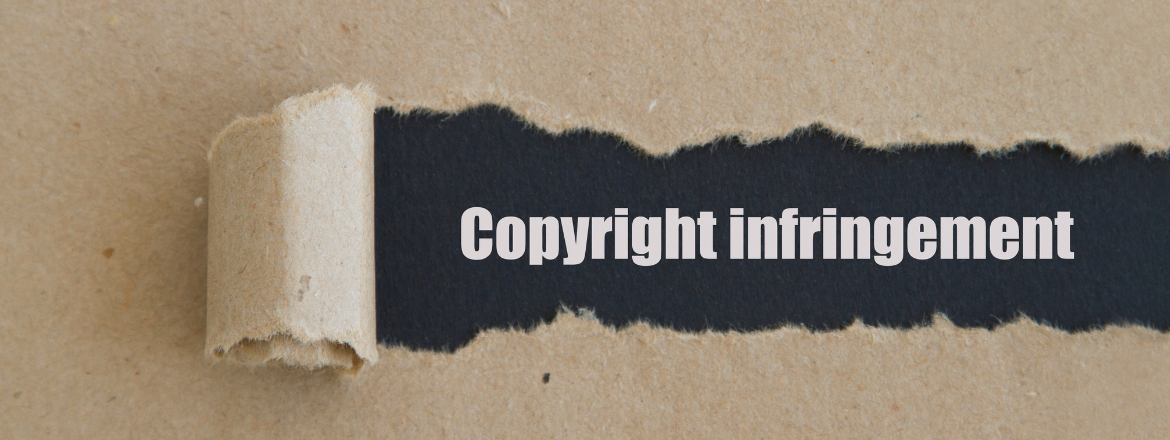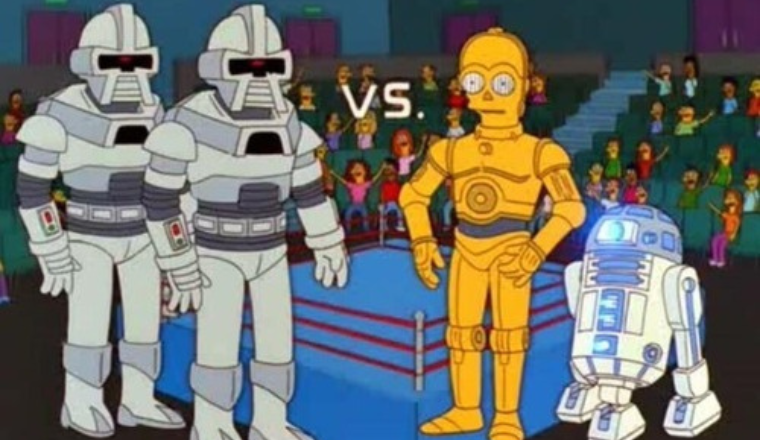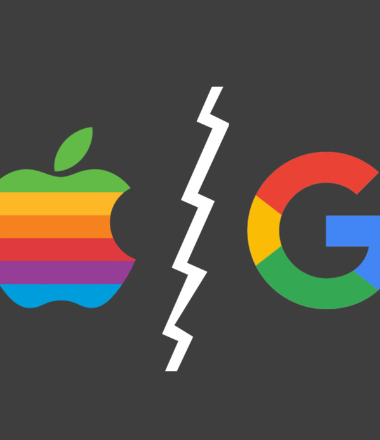Corporate Kaijus Clash: 15 Famous Copyright Infringement Cases

Table of Contents
What is Copyright Infringement
Infringement of copyright occurs when an individual unlawfully violates the exclusive rights bestowed upon a copyright proprietor, sans their authorization. These exclusive rights entail the freedom to duplicate, circulate, execute, showcase, and engender derivative works from a unique work of authorship.
Ideas are a nebulous concept, and legally protecting something intangible can result in an interesting chain of events, especially when big names and corporations are thrown into the mix. We'll delve into some historic courtroom battles over alleged copyright violations and look at some of the most high-profile cases ever brought by well-known plaintiffs.
Here are the 15 most famous instances of copyright infringement:
1. Whitmill vs Warner Brothers
Despite Hangover 2's success, its publisher, Warner Brothers, was sued by tattoo artist S. Victor Whitmill for using Whitmill's uncredited tattoo design without permission in the film and its promotional materials.
Despite Warner Brothers' claims that their use of the design was protected by the "fair use" policy, Whitmill pursued the case and sought a preliminary injunction that would have prevented the film from hitting theaters on schedule.
While the judge did rule against Whitmill's injunction request, he did agree that Whitmill still had a solid case and could pursue the lawsuit on other grounds.
An agreement was reached behind closed doors, and the film was released on schedule, thereby creating comedic history.
2. Katy Perry vs Marcus Gray
Copyright infringement and the music industry go together like peanut butter and jelly, so it stands to reason that this sector accounts for the lion's share of high-profile cases.
Dark Horse, Katy Perry's 2013 smash single, was one of the year's biggest hits. Earning recognition for achievements like selling over 13 million copies worldwide, attracting billions of Youtube views, having the song performed live during the Super Bowl, and winning MTV's music awards for best female video music in 2014.
In spite of this, Marcus Gray, a rapper, sued Perry the same year, claiming that she had stolen the riff and beat from his song "Joyful Noise''. Legal representation for Katy Perry argued that Gray's statement is preposterous and that he is trying to hold "the basic blocks of music," which could harm all composers.
Damages for Gray's case were estimated at $2.78 million and were awarded to him by the court in 2019. The judge would overturn the initial decision, however, in 2020 after an appeal was submitted, claiming that there was simply insufficient evidence to support the case.
3. The Music Industry vs Napster
A young technical genius named Shawn Fanning developed a piece of software called Napster in 1999 when the internet was still in its infancy. It is a peer-to-peer file-sharing application that allows users to freely share and download music.
Suffice it to say, Napster caught the attention of the music Industry. Metallica's drummer Lars Ulrich filed a lawsuit against the developer of the software in 2000, alleging copyright infringement, unauthorized use of a digital audio interface device, and racketeering.
This is believed to be the first case in which a well-known artist has directly sued a peer-to-peer file-sharing software company. This caused a domino effect in which major record labels like A&M and others began suing Napster. The plaintiffs accused the software company of vicarious copyright infringement and were eventually found guilty in 2002.
To the public's chagrin, Napster was forced to close that year, apologized publicly, and paid up to $26 million in damages.
This incident served as the catalyst for some people's animosity toward Metallica.
Legal protection of something intangible such as an Idea can result in an interesting chain of events.
4. Vanilla Ice vs David Bowie & Queen
As the first hip-hop single to reach number one on the Billboard Hot 100, Vanilla Ice's "Ice Ice Baby" left an indelible mark on popular culture. However, one of its worst qualities is that it sampled the bass lines from Under Pressure, a hit song by Queen and David Bowie.
Vanilla Ice tried to defend himself from the lawsuit brought against him by Queen and David Bowie for the unauthorized use of their song by claiming that he had added a single note to the end of the riff to make it more unique, but this was deemed insufficient.
The case was eventually settled out of court for an undisclosed amount of money, with both Queen and Bowie receiving songwriting credit.
5. Apple vs Microsoft
There was once a time when the two tech giants squared off in court.
Apple filed a lawsuit against Microsoft in 1988, shortly after the release of Windows 2.0, a significant upgrade to the original version. At the time, Apple accused Microsoft of plagiarizing the graphical user interface found on the Macintosh system without permission or a license.
This is where the case becomes interesting, as Apple did in fact grant Microsoft permission to use Macintosh's design elements in Windows. The mystery surrounding this part is that, for some reason, Apple's legal department did not receive the memo, after the release of Windows 2.0,
Apple was so taken aback by the suddenness of the legal proceedings that it skipped sending any sort of preemptive warning or threat.
As a result of this misunderstanding, the court ruled in favor of Microsoft in 1989, and although Apple attempted to appeal the decision multiple times, all of its efforts were unsuccessful.
6. Gucci vs Guess
In 2009, two of the fashion industry's most recognizable names squared off when Gucci sued Guess, alleging that the latter had violated several of Gucci's trademarks. Gucci had originally asked for $221 million in damages but settled for $4.1 million.
So why did that happen? The judge reasoned that Gucci's claim that it has repeatedly sent cease-and-desist letters to various parties over the years was a fatal flaw in the company's case.
These entities ranged from national corporations to small-time counterfeiters and infringers. With budgetary concerns and the fact that most of their evidence was speculative, Gucci's defense department has been stretched thin.
7. Starbucks vs Obsidian Group
Starbucks sued rival coffee chain Obsidian Group in 2016 for promoting its newest drink, the Freddoccino. Starbucks claimed that the name's similarity violates the copyright of their own popular iced coffee, the Frappuccino.
Despite Obsidian's efforts to assuage concerns by renaming their drink "the Freddo," Starbucks remained steadfast in their pursuit of the case, and the case has yet to be resolved as of mid-late 2022.
8. Art Buchwald vs Paramount Studios
In 1990, writer and comedian Art Buchwald sued Paramount, claiming that the studio stole his ideas from an abandoned project and turned them into the film's screenplay.
According to Paramount's defense, at the time, they paid their authors through the "Hollywood account," which means the screenwriters are paid based on how much profit the film made.
They stood firm in their claim that, despite gross revenue of $288 million dollars, the film produced no net profit, and thus they were not required to pay Buchwald. If this statement struck you as perplexing, the judge felt the same way.
He called Paramount's payment method "blatantly unethical and unconscionable" and ruled in Buchwald's favor, awarding him 900,000 dollars in damages.
9. Star Wars vs Battlestar Galactica
For science fiction fans, 1977 was an interesting year. Twentieth Century Fox sued Universal Studios for infringement the same year that A New Hope was released and defined a generation.
Fox asserted that Battlestar Galactica, a science fiction series produced by Universal, was "too similar" to one of their flagship intellectual properties.
Universal Studio did not take this lightly and filed a lawsuit of its own, claiming that Star Wars stole ideas from older media, such as the 1972 film Silent Running.
Two years later, the case was resolved in favor of Battlestar Galactica. The franchise as a whole was not doing so well at the time, despite the positive publicity surrounding the movie. The original show had been canceled, and fans were flocking to see The Empire Strikes Back.
10. Apple vs Google
In 2010, as smartphones became increasingly important in our daily lives, Apple and Samsung went to court over Samsung's alleged violations of Apple's patents on several of its smartphone designs. Apple's main competitor was not Samsung per se, but rather the Android operating system developed by Google and used by Samsung and other manufacturers.
Partially because of a "Mobile Application Distribution Agreement," Google's legal team had to intervene to help Samsung.
Concurrently, Motorola filed one of the most publicized lawsuits in technology history, accusing Apple of intellectual property infringement. Motorola claimed that Apple violated their patents on 3G phone technology and other aspects of smartphone design, while Apple fired back by claiming that Motorola had infringed on their patents on a number of features.
The court was so frustrated by the fight that the judges threw out the case three times in 2012, on the grounds that neither party had enough implicated evidence and were told to settle out of court. 2012 was the year that Google bought Motorola.
Although Apple has never directly attacked Google, they appear to focus on third-party companies that sell Google's software products; nonetheless, Google appears to be adamant in defending its popular mobile software.


11. Bratz vs Barbie
Carter Bryant, the creator of Bratz, was previously employed by Mattel, the manufacturer of Barbie. During his time working at Barbie, he came up with the idea for Bratz, which he later sold to one of Mattel's biggest competitors, MGA Entertainment.
The new doll franchise debuted in 2001 and quickly became the plastic bombshell's biggest competitor.
Mattel sued both Bryant and MGA in 2008, claiming that Bryant's idea was stolen intellectual property. MGA countersued, resulting in the two doll manufacturers locking horns.
MGA accused Mattel of corporate espionage by having its employees trained in spying on its competitors and resorting to clandestine underhanded tactics, such as having its employees print fake business cards and use them to enter the private showrooms of its competitor.
The lawsuit concluded in 2013 with a verdict in favor of MGA and an award of $170 million in damages, but Mattel would file an appeal to overturn the verdict, causing both parties to walk away empty-handed.
12. Naruto vs Slater
Photographer David Slater left his camera unattended while photographing wildlife in a foreign reserve, leading to a court case involving copyright infringements involving both humans and animals.
A crested macaque named Naruto discovered the camera and started taking the now-famous "Monkey Selfies" that have been making the rounds online. Slater, after discovering the images in his camera, published the image and its context on the website Blurb.
People for the Ethical Treatment of Animals (PETA) took notice of the photo after it went viral and sued Slater, Wildlife Personalities Ltd., and Blurb for copyright infringement, arguing that the selfies violated Naruto's authorship rights. In response, Slater filed a motion to dismiss, and the judge quickly sided with Slater, finding that Naruto lacked standing under the Copyright Act.
13. Lana Del Ray vs Radiohead
Lana Del Rey once claimed that Radiohead sued her for allegedly plagiarizing the hit song "Creep" in her 2017 single Get Free. Warner/Chappell, Radiohead's publisher, denied suing Del Ray or taking legal action against her, but admitted requesting that she attribute Creep to "all writers."
In 2018, during a Lollapalooza performance in Brazil, Del Ray appeared to confirm that the alleged lawsuit is over by telling her audience, "Now that my lawsuit is over, I guess I can sing that song whenever I want, right?"
14. John Fogerty vs John Fogerty
In one of the strangest copyright cases ever litigated, a record label once sued an artist for sounding like himself in a song he had written and performed decades earlier. John Fogerty is a musician and songwriter who was a member of the band Creedence Clearwater Revival (CCR). He eventually left the group to pursue a solo career, and his efforts paid off during the 1980s.
However, that all changed when he released a song titled "The Old Man Down the Road," which was later sued by CCR's record label, Fantasy Records, for allegedly plagiarizing CCR's "Run Through the Jungle." That's right; John Fogerty was sued over a tune he composed himself.
The judge sided with Fogerty in the end, saying, "you can't plagiarize yourself," effectively ending any further discussion as to whether or not he plagiarized himself.
After Fogarty's victory, he filed a countersuit against Fantasy Labels to recover the money he had spent on the case. The case went all the way to the Supreme Court of the United States, where it was ultimately decided in favor of the plaintiff. The judge ruled that the circumstances of the case ran counter to the original intent of the copyright law, which was to safeguard creative endeavors and promote new ideas.
15. Youtube vs Viacom
Viacom sued YouTube for $1 billion in 2007 for "Brazen" copyright infringement for allegedly hosting over 150,000 clips of Viacom's television shows and owned properties on their website.
YouTube argued that it is not legally responsible for content that infringes on third-party copyrights because it is merely an online service provider. This side issue could become the case's deciding factor.
The judge issued an order requiring YouTube to turn over its internal communications logs and transcripts to Viacom for review. If not for one small detail, this evidence would be considered indisputable and Viacom would have won without a doubt. As part of a guerilla marketing campaign, Viacom hired 18 advertising firms to create "unofficial accounts" and upload them as random users before the trial began, an action that can be described as nothing less than a blunder.
Worse yet, Viacom had no idea which accounts belong to them, so they ended up suing the third party to remove content that they had uploaded themselves.
This gave YouTube new life, and they argued that it was unreasonable to remove any account without knowing whether or not it belonged to Viacom.
Since YouTube had no way of telling which accounts were infringing on copyrights, it had no way of stopping them. Viacom's case collapsed due to this minor oversight, and the judge ultimately sided with YouTube, potentially sparing the media conglomerate.
Conclusion
To take full advantage of your brand and to maintain its goodwill, businesses should keep an eye out for counterfeiters and monitor if someone else is engaged in copyright infringement and reaping the benefits from their brand, If you own a business and come across a situation where a 3rd party is infringing on your brand image for their own products, get in touch with us at [email protected] for a complimentary consultation on how we can protect you from such thefts.
Also read our article on Copyright Guide for Freelance Writers to learn how you can avoid infringing copyrighted material.
Click on the link for more information on UAE Copyright Law.






